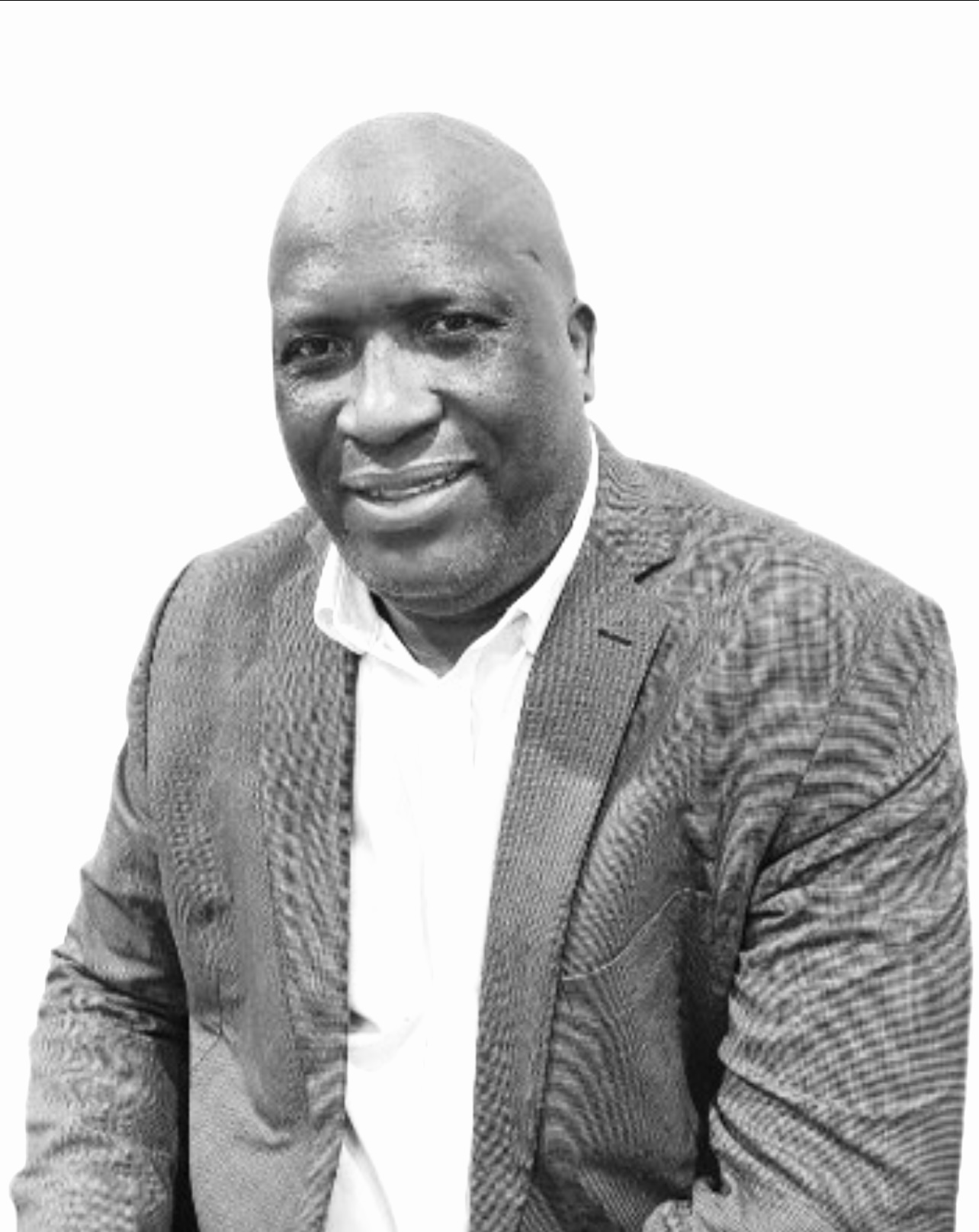By Ambassador Phatse Justice Piitso
The mothers of the mountain ranges of the Andes, the Amazonas of the Antilles, tales of humanity’s triumph against adversity – warrior women of freedom struggles, the culminating depth of consciousness produced by the circumstances of history, illuminating pathways for future humankind. From the dawn of antiquity, myths defining our hopes and aspirations echo through corridors into modernity, traversing epochs of civilisations, the eyes and ears of the universe, our triumphs and tribulations – we are its humanity.
Apotheosis of humanity’s freedom struggles, shaping the course of history: the mothers of Latin American wars of independence, the beautiful horizons of the Andes, the treasure store of biodiversity in the Amazon basin, genesis of origins, birthstone of humanity. The leadership role of women in the development of human society, struggles against benevolent patriarchy – no men nor women at the bank of the river Amazon, planets, sun, moon, where we all come from. The epitome of freedom struggles – our universe is humanity.
The Andes mountain ranges, birthplace of Latin America’s wars of independence, nations born of the universe’s beautiful creation. Unity of freedom struggles, Latin America as an oasis of revolutionary rhythm; female rebels of the Spanish empire. Within the walls of the National Museum, in the heart of Buenos Aires, a mural of far-reaching historical significance depicts the secret meeting of the mothers of the Andes – fourteen Creole women of Spanish descent, relinquishing riches to support the popular struggles. Their guns engraved with their names, proclaimed martyrs of our age. I wish I had been in their entourage, captured in a picture for posterity – revolutionaries writing their own history.
Revolutionary philanthropism, rare spices of the Amazonas; women shaking the foundations of colonialism. Philosophical and political intellectualism of the eighteenth-century Enlightenment; critique of monarchy and the church; the Napoleonic invasion of Spain and Portugal; the democratic inspirations of the American and French Revolutions; the historic revolt of the independent slave republic of Haiti; growing discontent against colonial administration, patriotism rising against loyalism.
Heroism illuminating centuries of human history – wilderness of the rainforest, paradise in the Antilles – advancing the ideals of freedom with felicity. Unanswered questions defying imagination. Rebel women, the rebonas, at the forefront of the trenches: cooks, nurses, lovers, mothers, combatants carrying newborn babies on their backs, transporting arms and managing caches. To have done what they became – the most beautiful flowers of the revolutionary struggles of our America.
The leadership role of women in struggles against colonialism and imperialism. Legendary guerrilla woman Juana Azurduy de Padilla – mother of the independent republics of Bolivia and Argentina. Heroism, courage and determination high upon the mountain peaks, vestiges in the endless valleys of the Andes – wondrous creation of nature. Our flag, our freedom. The living or the dead, heaven or earth – the undying spirit of heroism. Mother of our nations, inspiration of humanity.
Born in the Viceroyalty of Río de la Plata, a Spanish colonial territory encompassing Upper Peru – present-day Bolivia, Peru and Argentina – in colonial Chuquisaca, now Sucre, powerhouse of the American wars of independence. Home to the most educated, wealthy white oligarchy of Spanish expatriates; flourishing trade establishments, cathedrals, religious congregations, and the first university of Chuquisaca. Daughter of Don Matias Azurduy of Basque origin and Doña Eulalia Bermúdez, a woman of mestizo and Indigenous ancestry.
Untimely death of both parents – orphaned at an early age – she found spiritual comfort in a local convent, growing into a nun. Education expanded frontiers of knowledge; roots of her rebelliousness nurtured by the stories of the medieval heroine Joan of Arc, French peasant guided by divine inspiration, leading armies to victory, burned at the stake by English and French collaborators, later exonerated, canonised a saint, and declared national heroine of France.
Awakening consciousness, a warrior fighting her way into history. Poverty-stricken suburbia of Chuquisaca – unspeakable living conditions, a haven of human degradation. Atrocious poverty, disease, underdevelopment – the agonies of capitalism, the have and have-nots. The struggle continues. She symbolised the heart and soul of the Andes, a testament of unwavering courage and resolve, certainty embracing uncertainty – cathedral of the revolutionary soul.
Recruited into the underground machinery of the patriotic forces, reaffirming her commitment to humanity’s future. A combatant of revolutionary struggles – organising pamphlets, rallies, infiltrating loyalist organisations, arranging uniforms, medicine, food. Juana Azurduy de Padilla abandoned the holy mantle for the call of destiny. Love has no time nor age: the nun married the soldier Manuel Ascencio Padilla of a profound revolutionary family. Baptism of flames – destiny imposed upon a beloved soul. Blood marking the path to victory, dreams that would not return. She took command of liberation forces, receiving accolades ordinarily reserved for men – triumphs of the rebel women of the Andes.
Leading a formidable battalion, she fought in the historic battle of Chuquisaca. An army of women of the Amazon, renowned for unwavering support to their commander – six thousand women armed to the teeth. Seizing the famous Cerro Rico of Potosí, the silver mountain of the Andes, the wealth of the Spanish empire. An unwavering march to freedom. A woman giving birth on the battlefield – myth and reality intertwined. Promoted to lieutenant colonel, receiving the commander’s own sword – exemplary virtue of revolutionary morality.
Following the teachings of Simón Bolívar, father of Latin American independence, who said:
“To unite in order to rest, to sleep in the arms of apathy – yesterday it was decline; today it is betrayal. Let us fearlessly lay the cornerstone of Latin American freedom. To hesitate is to perish.”
After the independence struggles, she retired destitute – comrades long having abandoned her. But not Bolívar, who visited her in the countryside and promoted her to colonel in the new administration, arranging a pension. He said:
“This country should not be named Bolivia in my honour, but Padilla Azurduy, for she is the one who made it free.”
Paying tribute to the mother of Latin America, Azurduy Juana Padilla, I borrow the generous words of Cuban historian Francisco Pividal on Bolívar:
“That is how Bolívar is in the sky of America: vigilant and frowning, seated on the rock of creation, with the Inca by his side and the bundle of flags at his feet… still wearing his campaign boots, because what he did not leave undone is still there today.”
Today I repeat: that is how Azurduy Juana Padilla is in the sky of America – vigilant and frowning, seated on the rock of creation, with the Inca by her side and the bundle of flags at her feet. Still wearing her campaign boots, because what she did not leave undone remains before us – for Azurduy Juana Padilla still has to do America.
A century later, Bolivia’s first Indigenous president, Evo Morales, exhumed her remains to be reburied in the national mausoleum in her honour. Her birthday, July 12, declared a public holiday – the Argentine-Bolivian Fraternity Day. Sucre’s international airport renamed Azurduy Juana Padilla International Airport; one of the provinces bearing her name.
The government of Argentina, in 2009, posthumously awarded her the rank of General of the Argentine Army. That same year, Bolivia gifted Argentina a 15-metre-high statue – our beautiful mother, granddaughter of the Amazon rainforests – replacing the monument of Christopher Columbus in Buenos Aires.
Argentine singer Mercedes Sosa honoured her with a beautiful song:
“Juan Azurduy flower
Of Upper Peru
There is no other
Braver than you
I hear your voice
Beyond Jujuy
And your courageous gallop
Dona Juana Azurduy
It makes me fall in love
With the fatherland unveiled
I travel its territories
The Spaniards shall not pass
With the women
They will have to fight…”
Humanity is emboldened by her extraordinary feats of courage and selflessness – her love and tenacity. The most decorated rebel woman soldier, first to attack and last to leave the battlefield, leaving no comrade behind. Knowing well that real soldiers are those who never return home – mortal remains draped in the nation’s flag, the same flag at the feet of Bolívar. In the temple of battles, the brave die never.
Occasions of history make the courageous known – their example the dream of future societies. Generations shall follow her footsteps in the valleys of the Andes. What would we have been without her? Never broken by the chains of adversity – our dear mother, Azurduy Juana Padilla – eyes and ears of the universe. Her image is freedom, heartbeat of future humanity. Walking in the skies of the Antilles, cradle of humankind, she has given the universe heart and soul – we are its creation.
Thousands of battles remain ahead. Power of our generation – making the world a better home for humanity. Working together, we shall achieve. Memories of a guerrilla fighter, glimpses of her brightest endeavours – we need millions of Azurduy Juana Padilla to make the world a better place for humanity. Candle of hope, guardian of what the future holds, her humility, her greatness of soul, solidarity and internationalism – we shall continue. Struggle continua – our America, our world.
*****
Ambassador Phatse Justice Piitso is a member of the African National Congress, writing this article in his personal capacity.

